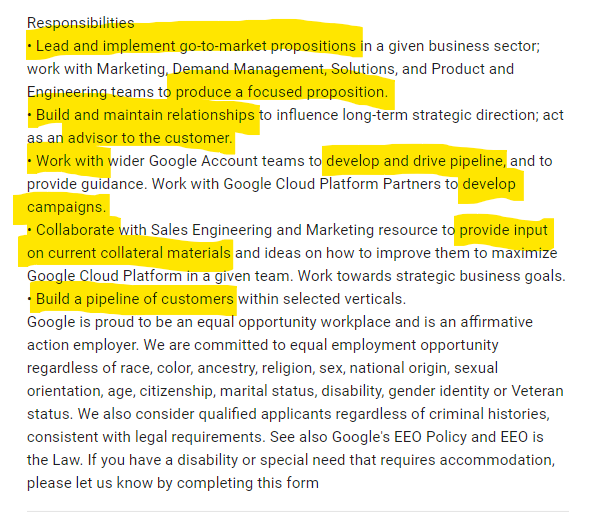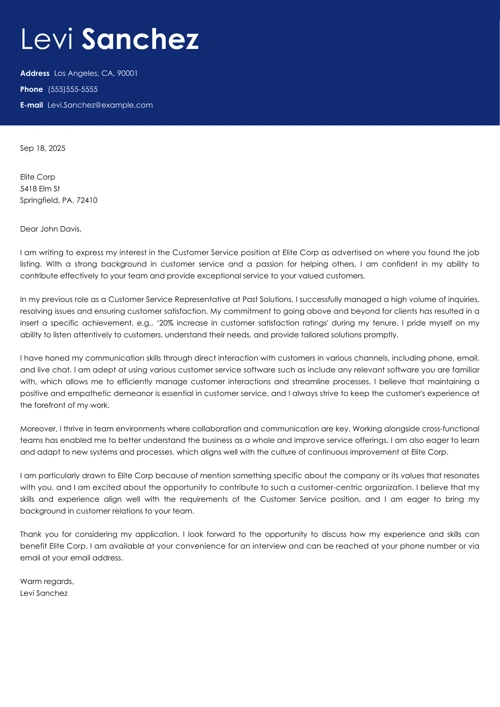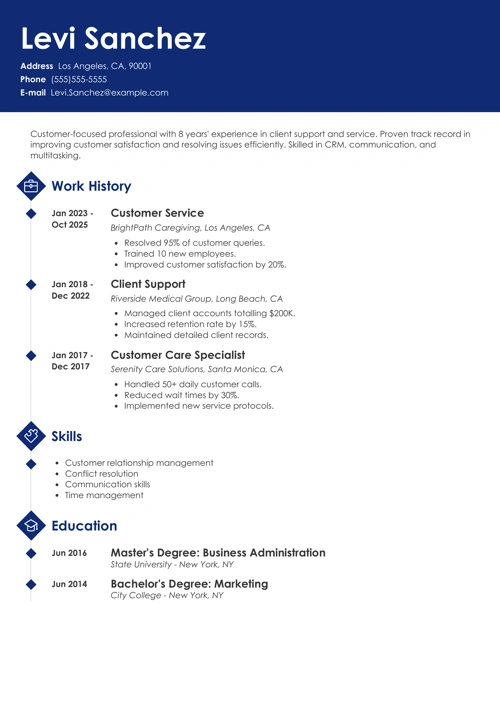“Hi, you should hire me. I’m the best. Blah, blah, blah” Yuck. How do you sell yourself in a cover letter without sounding salesy or braggy? And how do you write a letter without being boring? It seems like such a fine line, and if you’re not a cover letter expert, it can feel impossible.
But if you get it right, you’ll be a breath of fresh air to hiring teams and recruiters. They’ll read your letter and think, “finally, a job candidate who understands us. Someone we can hire with confidence.”
Take heart. It’s not so hard to write a cover letter that convinces. There are about five or six pieces of clear, simple advice that can make your cover letter stand out like a beacon. The first step? Understand the company’s needs for the position. It’s so simple, but so many miss it.
This guide will show you:
- How to sell yourself in a cover letter so hiring managers want to hire you.
- The right way to write a cover letter without sounding braggy or salesy.
- Why 20 minutes of research into one company is worth two hours of applying blindly to 20 companies.
- How to tell your story quickly so it becomes part of the employer’s story.
Want to write your cover letter fast? Use our cover letter builder. Choose from 20+ professional cover letter templates that match your resume. See actionable examples and get expert tips along the way.
Sample cover letter for a resume—See more cover letter samples and create your cover letter here.
Here's a few shortcuts before be begin:
- How to Write a Cover Letter for Any Job
- Cold Cover Letter
- Entry Level Cover Letter
- Cover Letter for Internship
- Marketing Cover Letter
- Marketing Intern Cover Letter
- Marketing Cooridnator Cover Letter
- Recent Graduate Cover Letter
- Sales Cover Letter
- Business Cover Letter
- Information Technology (IT) Cover Letter
- Career Change Cover Letter
- Short Cover Letter Examples
- Motivation Letter
- Sample Cover Letters for 200+ Jobs
First, let’s smoke the competition with a template letter you can copy and adapt:
Selling Yourself in a Cover Letter (Sample)
Jason Howe
HVAC Technician
3098 Allen Avenue
Vision, Connecticut 06071
203-524-1550
jasonzhowe@gmail.com
linkedin.com/in/jasonzhowe
7/30/20
Mary Ellen Moffat
Personnel Director
Tri City HVAC & Electric
4813 Cherubim Street
Vision, Connecticut, 06071
Dear Ms. Moffat,
As a licensed HVAC technician with 6+ years of experience working extensively on residential and commercial systems, I was encouraged to see your ad for an HVAC tech at Tri City HVAC & Electric. I’d like to work for you because I’ve interacted with your crews during several jobs over the past six years, and I’ve always been impressed by their professionalism, cleanliness, and proficiency, and with the excellent condition of your vehicles and equipment. I know you’re seeking an HVAC tech who can clean and repair single-split and multi-split commercial systems and residential systems including split, hybrid, and duct-free. I think my resume will interest you, based on the following achievements:
I’ve serviced more than 400 single and multi-split HVAC systems for hundreds of commercial clients, including routine filter replacement, coolant replacement, leak location and repair, and chiller plant overhaul. I’ve also installed, repaired, and serviced over 1,000 residential systems, with a 95% approval rating in exit surveys from customers. I know a large part of HVAC is building relationships, which is where my interpersonal skills come in. I work to understand where the customer is coming from, to ensure they understand the service we’re performing, and to do the work according to their needs. That’s why my previous supervisor at Iverco Air & Care awarded me the Service Tech of the Month citation not once but three times.
Because of the professionalism and attention to detail at Tri City HVAC & Electric, I’m very interested in this role. Working as an HVAC technician at your firm would give me the tools I need to help more customers enjoy a higher level of comfort and service. Could we set up a time next week to talk about how my interpersonal, technical, and customer service skills would fit into and elevate the Tri City HVAC & Electric mission?
Best regards,
Jason Howe
HVAC Technician
3098 Allen Avenue
Vision, Connecticut 06071
203-524-1550
jasonzhowe@gmail.com
Now that's what a cover letter should look like!
Why does that cover letter sample sell your skills better than any other? Because it hits the all-important target of employer needs with your own existing skills.
How Do You Sell Yourself in a Cover Letter?
To sell yourself in a cover letter, first picture the company’s perfect employee. You can’t do that based on raw imagination. You need data. Look closely at the job ad and do a little quick online research. Then tell your story in a way that shows you are that ideal new hire.
Sound complicated? It’s not. I’ll show how below.
Here’s how to sell yourself in a cover letter:
1. Research the Company—But Don’t Spend Hours
Ugh—I know—research. It sounds deadly dull. But it’s the #1 way to sell yourself in a cover letter without sounding like a huckster. If you do it, you’ll get 10x more interviews. Why? Because your cover letter will show listening skills and you’ll fit the job ad like a plug into a socket.
You could spend all day on this, but don’t. Stick to about 15 minutes or your job search will get stuck in the mud.
To research a company for a cover letter, see:
- The job ad
- The organization’s website
- Their mission statement
- News items, press releases, and/or videos about the company’s success, goals, products, and awards.
The first and best place to look? The job posting.
How to Sell Yourself in a Cover Letter Example—Research
Here’s a sample job ad for a sales manager, with the important parts in yellow:

Now you have a picture of the company’s perfect new hire. You’ll sell yourself in your cover letter so much better because you know what they’re looking for.
Here are two more research tips:
- Their website. When you look at their website, see what kind of products and services they offer. Read their mission statement. Knowing exactly what they do can help you build a picture of their best possible employee.
- News items. Do a Google search of the company, but click the little “News” tab at the top. Have they won awards? Been written up for successes? Announced new lines of business? Those facts can show you how your story fits with theirs.
Pro Tip: Spend 5 minutes finding people on LinkedIn at the company who already have the job you want. Send them a short email asking about their job. It’s called an informational interview.
2. Find Three Ways You Fit the Role
“This applicant just isn’t a good fit.” Oh no! That’s the death knell. Avoid it like the plague. How? By using what you learned during your research. Once you have a picture of their perfect employee, find three ways that’s you. The key strategy is to find past job achievements that fit the abilities they want.
Here’s an example:
Say the hiring manager wants an HVAC technician skilled in servicing multi-split and residential systems. Brainstorm your past work accomplishments like this:
How to Sell Yourself in a Cover Letter Example—Finding Ways You Match
- Serviced 400+ multi-split HVAC systems
- Repaired and serviced 1,000+ residential systems
- Maintained 95% approval rating from customers
- Installed 30+ new systems
- Commended by service manager for efficiency
- Built relationships with over 100 customers
- Worked to lower job completion times by 20%
See that? The achievements in green exactly fit their best employee. We’ll save the others for your resume. But—what if you don’t have exact-match achievements like that? Don’t panic. Use your most eye-popping past achievements that fit best.
Okay, so you’ve dug up some ways you fit. Now let’s write your letter so it sells your skills.
The real key to selling yourself in a cover letter is targeting it to the job. See our guide: What to Include in a Cover Letter
3. Tell About Achievements—Not Just Duties
“Yes, you did the job, but were you good at it? Or awful?” To sell yourself in a cover letter, don’t just tell them what you did. To get the job, you have to show results. Let’s say you designed ships for ten years. Okay, fine. But was it the Titanic? Or the Oasis of the Seas?
Here are some examples of duties vs achievements:
How to Sell Yourself in a Cover Letter Example—Duties vs Achievements
- Duty: I managed a sales team.
- Achievement: I managed a team of 6 sales professionals in a home & hearth business with $6M in annual revenue and raised revenue by 20% in 6 months.
- Duty: I was responsible for product development.
- Achievement: I led a team of 4 developers in end-to-end development of 2 SaaS products generating $2M in revenue per year.
- Duty: I worked as a waitress.
- Achievement: I maintained a 98% positive score in 500+ customer comment cards over a 2-year period.
You get the idea. Selling yourself in a cover letter isn’t about saying what you did. It’s about how well you did it.That's how persuasive writing works.
Pro Tip: Aspiring comedians have a saying — it’s not you, it’s your material. It’s the same with cover letters. Sell yourself by showing the side of you that will impress them.
4. Use Numbers to Sell Yourself
“Wow, your cover letter knocked our socks off!” Can’t wait to make the hiring team say that? You can—if you use numbers. Numbers help you sell yourself in a cover letter by putting a ruler next to your accomplishments. Without numbers, you might look like small potatoes.
Take some time to think how to quantify your past achievements. How much did you grow revenue? How big was the company you worked for? Sure, you were a project manager. But were the projects things like putting up shelves in a home office? Or did they have budgets of $3M?
Here’s an example of how to sell yourself in a cover letter with numbers:
How Do You Sell Yourself in a Cover Letter Example—Numbers
| Right |
|---|
| I’ve serviced more than 400 single and multi-split HVAC systems for hundreds of commercial clients, including routine filter replacement, coolant replacement, leak location and repair, and chiller plant overhaul. I’ve also installed, repaired, and serviced over 1,000 residential systems, with a 95% approval rating in exit surveys from customers. I know a large part of HVAC is building relationships, which is where my interpersonal skills come in. I work to understand where the customer is coming from, to ensure they understand the service we’re performing, and to do the work according to their needs. That’s why my previous supervisor at Iverco Air & Care awarded me the Service Tech of the Month citation not once but three times. |
| Wrong |
|---|
| I’ve serviced commercial systems, including routine filter replacement, coolant replacement, leak location and repair, and chiller plant overhaul. I’ve also installed, repaired, and serviced residential systems, with extremely high approval ratings. I know a large part of HVAC is building relationships, which is where my interpersonal skills come in. I work to understand where the customer is coming from, to ensure they understand the service we’re performing, and to do the work according to their needs. That’s why my previous supervisor at Iverco Air & Care awarded me the Service Tech of the Month citation many times. |
Wow. What a difference. Both are excellent, but which one is better? The first example sells your skills in a cover letter best because it’s got numbers. Numbers show you’re not just bragging. You’ve got data to back up your claims.
“Yes, but can’t people just make up numbers?”
They can, but if they lie, the hiring manager will smell it in the interview.
What to Do if You Don’t Know Exact Numbers
If you don’t know exact numbers, use terms like this:
- 50+
- ~50
- About 50
- Approximately 50
- Over 50
- More than 50
The “~” symbol means “about.” You’ll find it on the upper left side of your keyboard. It’s called a tilde.
Not sure how to get all your ducks in a row? See our guide: What Should a Cover Letter Say
5. Write a Jaw-Dropping First Paragraph
“I skimmed your cover letter.” That’s the worst! But it happens all the time. Why? Because too many applicants start out like, “I’m writing to you about your opening for blah blah blah.” That’s boring! The hiring manager is thinking about that documentary on ultra-runners she saw last night!
To sell yourself in a cover letter, you’ve got to make them read it first.
Include:
- A personal cover letter greeting. If you can find the manager’s name, use it. People’s names wake them up. So much better than a To Whom It May Concern cover letter.
- Your number of years of experience.
- A hook. If they want someone who can mow lawns and you’ve mowed 10,000 lawns, that’s your hook. If you love their professionalism, that works too.
- Your understanding of their needs. Do they need a nurse skilled in triage and patient education? Tell them you know that to prick their ears up.
- A mention of your resume and of the key points you’ll show in the next paragraph. That’ll keep them interested.
Let’s see this elevator pitch in action:
How to Sell Yourself in a Cover Letter Example—First Paragraph
| Right |
|---|
|
Dear Ms. Moffat, As a licensed HVAC technician with 6+ years of experience working extensively on residential and commercial systems, I was encouraged to see your ad for an HVAC tech at Tri City HVAC & Electric. I’d like to work for you because I’ve interacted with your crews during several jobs over the past six years, and I’ve always been impressed by their professionalism, cleanliness, and proficiency, and with the excellent condition of your vehicles and equipment. I know you’re seeking an HVAC tech who can clean and repair single-split and multi-split commercial systems and residential systems including split, hybrid, and duct-free. I think my resume will interest you, based on the following achievements: |
| Wrong |
|---|
|
I’m writing this letter about your HVAC technician job opening. I found it on Indeed. I’m an experienced HVAC technician who works hard to get the job done. I show up on time and I’ve always taken pride in my work... |
Ouch, right?
That first example has all the right moves—experience, something you like about them, and your understanding of their needs. The hiring manager is very interested in your letter, your resume, and your application. She knows you care about her and her company. That’s great!
The second letter fizzles. It’s a generic cover letter that makes empty claims.
Read more: How to Start a Cover Letter
Plus, a great cover letter that matches your resume will give you an advantage over other candidates. You can write it in our cover letter builder here. Here's what it may look like:
See more cover letter templates and start writing.
6. Say Why You Want the Job
“We can tell you’d be a good employee. But will you quit after three months? Why this job? Will you desert us for a higher-paying gig?” Hiring managers worry about how long you’ll last. Reassure them by showing why they matter to you. To do it, join your story with their story.
To prove you care, think about:
- How the role will help with your career goals
- Why the job will let you use your top job skills
- A few ways the organization’s mission statement inspires you.
Let’s see how that can work:
Letter of Intent Example—Third Paragraph
| Right |
|---|
|
Because of the professionalism and attention to detail at Tri City HVAC & Electric, I’m very interested in this role. Working as an HVAC technician at your firm would give me the tools I need to help more customers enjoy a higher level of comfort and service. |
| Wrong |
|---|
|
I hope you understand how much I want this job. I pay attention to every detail, and I hardly ever miss a day of work. I’m an excellent HVAC technician who works hard to make sure the customer is satisfied before I move on to the next job. I’ve done installs, repair, regular service, and commercial and residential refurbishments. |
Night and day.
That first example of how to sell yourself in a cover letter merges your story with theirs. It shows you have the same goals. That’s huge. But the second misses the point. It talks all about you. That will interest nobody.
7. Mention a Referral
“These other applicants are great, but Candace vouches for this one.” Referrals are job-search magic. Why? Because the hiring process is all about clearing away doubts. A single referral replaces a mountain of interviewing, background-checking, and reading resumes and cover letters.
So, how to sell yourself in a cover letter with a referral? Drop the name in your strong first paragraph. The referral can be the hook that keeps them reading to the end.
Check out this example:
Letter of Intent Example—Referral
| Right |
|---|
|
Dear Mr. Wiltse, I’m a manufacturing engineer with 2 years of experience, writing about the manufacturing engineer opening at Clanaco-Wythe Global. I was excited when Andrea Gregg, your head of sales, told me about the position, because she explained that your commitment to Kaizen has created a deep culture of continuous improvement. As a devotee of Kaizen, I... |
Don’t have a referral in the company? It takes time, but you can get them. Do it with a little career networking. Reach out to employees in the organization on LinkedIn. But don’t ask for the referral outright. Instead, tell them you’re interested in what they do.
Why does that work?
Because nobody has five spare seconds to talk to you about your needs. But everyone has two hours to talk about how cool their life is. After the conversation, tell them you’re applying. You’ve got a decent chance they’ll mention you to the boss.
Got employment gaps? They’re tough, but you can beat them. See our guide: How to Explain Gaps in Employment (Resume & Cover Letter)
8. End Your Cover Letter With a Call to Action
Do you feel awkward at the end of your cover letter? To sell yourself in a cover letter, ask for the interview—but do it right. To ask with confidence, offer something in return. Namely, propose a conversation they’ll actually want to have.
Here’s how it works:
How to Sell Yourself in a Cover Letter Example—Call to Action
| Right |
|---|
|
Could we set up a time next week to talk about how my interpersonal, technical, and customer service skills would fit into and elevate the Tri City HVAC & Electric mission? |
| Wrong |
|---|
|
Thank you for reading my cover letter and resume. I sincerely hope to speak with you soon. |
Massive difference. The first of those samples promises a fun chat about how your skills can fit their needs. The second is dull boilerplate. They won’t even notice it.
Read more: Best Ways to End a Cover Letter
8. Pay Attention to Your Formatting
Yes, we have to say it. Formatting in a cover letter matters if you want to sell yourself. Botch your cover letter layout and they won’t notice your great argument for why they ought to hire you. Instead, they’ll think, “Huh. Weird-looking letter.”
Follow correct cover letter structure:
- Use a professional cover letter outline with 3–4 paragraphs.
- Set cover letter line spacing at 1.15, with 1-inch margins.
- Write with a respected cover letter font.
- Start with a businesslike cover letter heading with your contact info, the date, and the hiring manager’s info.
- End with a cordial sign-off like “best regards,” then your name, job title, phone number, and email address.
After analyzing 11 million resumes made with our builder, we noticed that these are the top 10 professions that usually create a cover letter:
- Business Operation Specialists
- Top Executives
- Advertising, Marketing, and PR Managers
- Clerks
- Engineers
- Retail & Sales Representatives
- Healthcare Practitioners
- Financial Specialists
- Teachers and Instructors
- Counselors, Social Workers, and Social Service Specialists
Key Takeaway
Here’s how to sell yourself in a cover letter:
- Research the company before you write. The more you know about their needs, the more you can know what parts of your career to share with them.
- Find your best 2–3 achievements that fit what they’re looking for. Share those in the middle paragraph(s) of your letter.
- Share your work accomplishments—not just your job duties.
- Add numbers to show the full scope of your work.
- Show your enthusiasm for their organization. If they know you like them, they know you’ll be a long-term hire.
- End your letter with a strong call to action that requests the interview in a powerful way.
Creating a resume with our builder is incredibly simple. Choose a resume template and follow our step-by-step guidance to have a professional resume ready in minutes.
When you’re done, our professional resume builder will score your resume and our ATS resume checker will tell you exactly how to make it better.
About Zety’s Editorial Process
This article has been reviewed by our editorial team to make sure it follows Zety's editorial guidelines. We’re committed to sharing our expertise and giving you trustworthy career advice tailored to your needs. High-quality content is what brings over 40 million readers to our site every year. But we don't stop there. Our team conducts original research to understand the job market better, and we pride ourselves on being quoted by top universities and prime media outlets from around the world.





